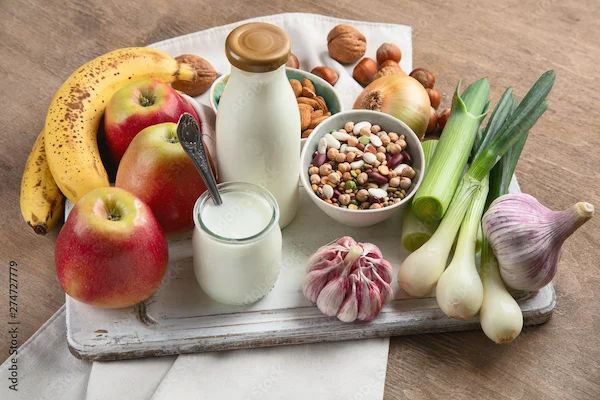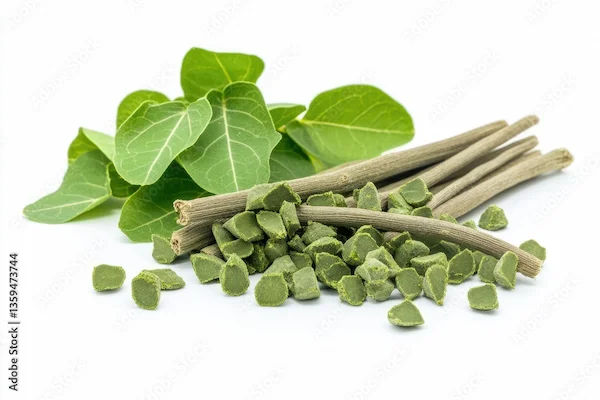Understanding Probiotics and Prebiotics Differences
Understanding probiotics and prebiotics, what are common sources and health benefits and key benefits of using them. Learn about the differences between prebiotics and probiotics.

Written by Dr. Siri Nallapu
Reviewed by Dr. Dhankecha Mayank Dineshbhai MBBS
Last updated on 27th Jul, 2025

Introduction
Maintaining good gut health is essential for overall well-being, and two key players in this process are probiotics and prebiotics. While they sound similar, they serve different roles in supporting digestion and immunity. This article will help you understand their differences, benefits, and how to incorporate them into your diet for a healthier gut.
What Are Probiotics?
Probiotics are live beneficial bacteria and yeasts that naturally reside in your gut. They help maintain a healthy balance of microorganisms in your digestive system, aiding digestion, boosting immunity, and even improving mental health.
Common Sources of Probiotics:
Yoghurt (with live cultures)
Kefir (fermented milk drink)
Sauerkraut & Kimchi (fermented vegetables)
Miso & Tempeh (fermented soy products)
Probiotic supplements (consult a doctor before use)
Health Benefits of Probiotics:
Improve digestion and reduce bloating
Strengthen the immune system
Help manage diarrhoea and constipation
May improve mood and mental health
Consult a Top nutritionist for the best advice
What Are Prebiotics?
Prebiotics are non-digestible fibres that act as food for probiotics. They help the good bacteria in your gut grow and thrive, ensuring a healthy digestive system.
Common Sources of Prebiotics:
Garlic & Onions
Bananas (especially slightly green ones)
Asparagus & Leeks
Whole grains (oats, barley)
Chicory root & Jerusalem artichoke
Health Benefits of Prebiotics:
Support gut bacteria growth
Improve nutrient absorption (especially calcium)
Help regulate blood sugar levels
May reduce inflammation
Key Differences Between Probiotics and Prebiotics
| Feature | Probiotics | Prebiotics |
| Type | Live bacteria/yeast | Non-digestible fiber |
| Function | Add good bacteria to gut | Feed existing good bacteria |
| Found in | Fermented foods, supplements | Fiber-rich foods |
| Benefits | Improve digestion, immunity | Support bacterial growth, nutrient absorption |
How to Improve Gut Health with Probiotics & Prebiotics
1. Eat a Balanced Diet – Include both probiotic and prebiotic foods daily.
2. Stay Hydrated – Water helps digestion and nutrient absorption.
3. Limit Processed Foods – Sugar and artificial additives harm gut bacteria.
4. Consider Supplements (if needed) – Consult a doctor before taking probiotics.
5. Exercise Regularly – Physical activity supports a healthy gut.
When to See a Doctor?
If you experience persistent digestive issues like bloating, diarrhoea, or constipation, it’s best to consult a healthcare professional. They can recommend the right probiotics or dietary changes for your condition.
Final Thoughts
Both probiotics and prebiotics play crucial roles in gut health. While probiotics introduce good bacteria, prebiotics nourish them. Including a mix of both in your diet can improve digestion, immunity, and overall well-being.
Consult a Top nutritionist for the best advice
Consult a Top nutritionist for the best advice
Ms. Lakshmi Tejasvi
Clinical Nutritionist
14 Years • M.Sc - Clinical Nutrition
Hyderabad
Vibgyor Nutri, Hyderabad

Dr. Bhukya Pavan Kalyan
General Physician
5 Years • MBBS DNB Paediatrics
Bengaluru
PRESTIGE SHANTHINIKETAN - SOCIETY CLINIC, Bengaluru

Dr. Ramalinga Reddy
General Physician
5 Years • MBBS MD General medicine
Bengaluru
PRESTIGE SHANTHINIKETAN - SOCIETY CLINIC, Bengaluru
Dr Sumanth R
General Physician
2 Years • MBBS
Bengaluru
PRESTIGE SHANTHINIKETAN - SOCIETY CLINIC, Bengaluru
Dt. Ila Sharma
Clinical Nutritionist
18 Years • Master in food & Nutrition
Gurugram
VIPUL GREENS - SOCIETY CLINIC, Gurugram



